Zhangzhang Si
Scalable Language Models with Posterior Inference of Latent Thought Vectors
Feb 03, 2025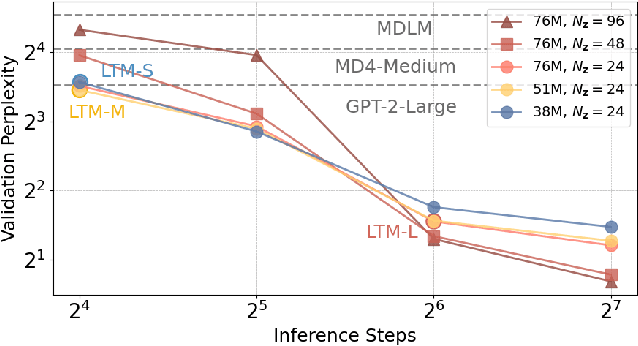

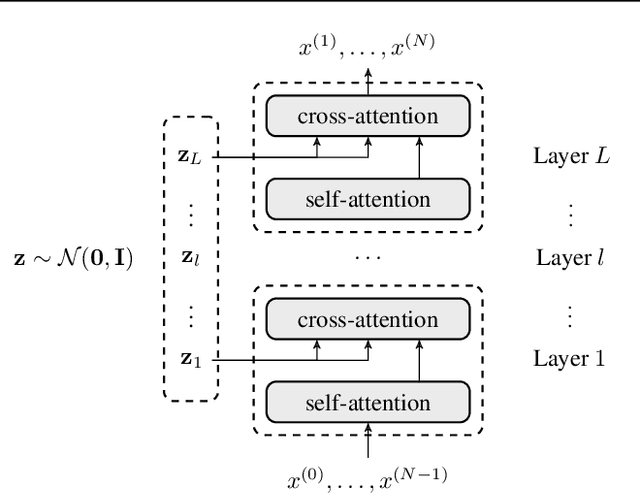
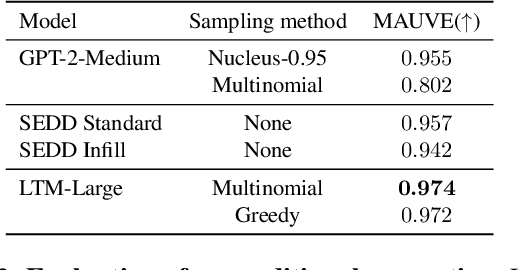
Abstract:We propose a novel family of language models, Latent-Thought Language Models (LTMs), which incorporate explicit latent thought vectors that follow an explicit prior model in latent space. These latent thought vectors guide the autoregressive generation of ground tokens through a Transformer decoder. Training employs a dual-rate optimization process within the classical variational Bayes framework: fast learning of local variational parameters for the posterior distribution of latent vectors, and slow learning of global decoder parameters. Empirical studies reveal that LTMs possess additional scaling dimensions beyond traditional LLMs, yielding a structured design space. Higher sample efficiency can be achieved by increasing training compute per token, with further gains possible by trading model size for more inference steps. Designed based on these scaling properties, LTMs demonstrate superior sample and parameter efficiency compared to conventional autoregressive models and discrete diffusion models. They significantly outperform these counterparts in validation perplexity and zero-shot language modeling. Additionally, LTMs exhibit emergent few-shot in-context reasoning capabilities that scale with model and latent size, and achieve competitive performance in conditional and unconditional text generation.
Serverless Federated Learning with flwr-serverless
Oct 23, 2023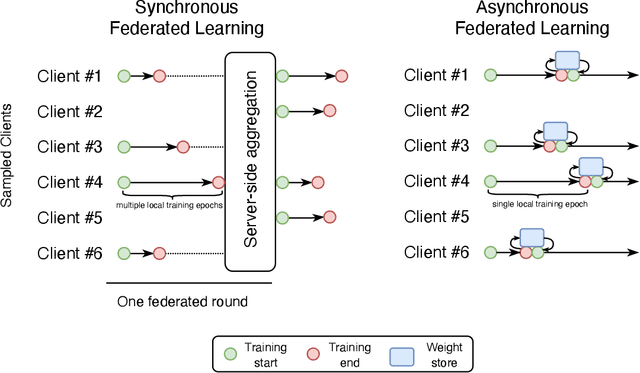

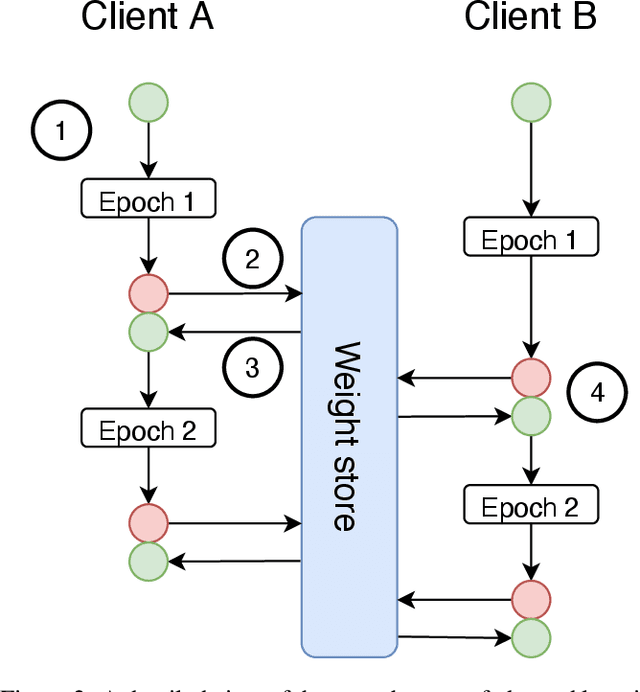
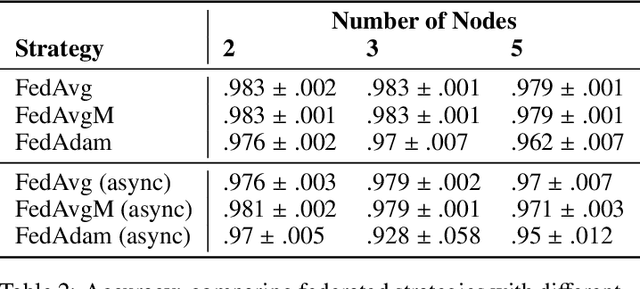
Abstract:Federated learning is becoming increasingly relevant and popular as we witness a surge in data collection and storage of personally identifiable information. Alongside these developments there have been many proposals from governments around the world to provide more protections for individuals' data and a heightened interest in data privacy measures. As deep learning continues to become more relevant in new and existing domains, it is vital to develop strategies like federated learning that can effectively train data from different sources, such as edge devices, without compromising security and privacy. Recently, the Flower (\texttt{Flwr}) Python package was introduced to provide a scalable, flexible, and easy-to-use framework for implementing federated learning. However, to date, Flower is only able to run synchronous federated learning which can be costly and time-consuming to run because the process is bottlenecked by client-side training jobs that are slow or fragile. Here, we introduce \texttt{flwr-serverless}, a wrapper around the Flower package that extends its functionality to allow for both synchronous and asynchronous federated learning with minimal modification to Flower's design paradigm. Furthermore, our approach to federated learning allows the process to run without a central server, which increases the domains of application and accessibility of its use. This paper presents the design details and usage of this approach through a series of experiments that were conducted using public datasets. Overall, we believe that our approach decreases the time and cost to run federated training and provides an easier way to implement and experiment with federated learning systems.
 Add to Chrome
Add to Chrome Add to Firefox
Add to Firefox Add to Edge
Add to Edge